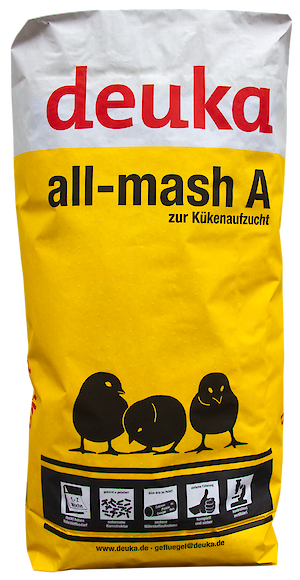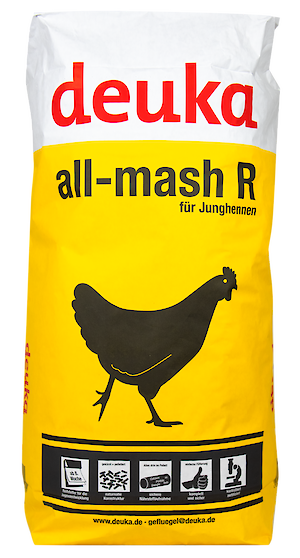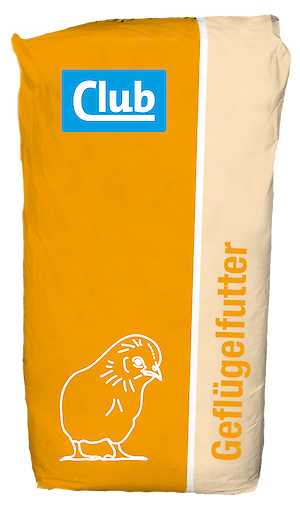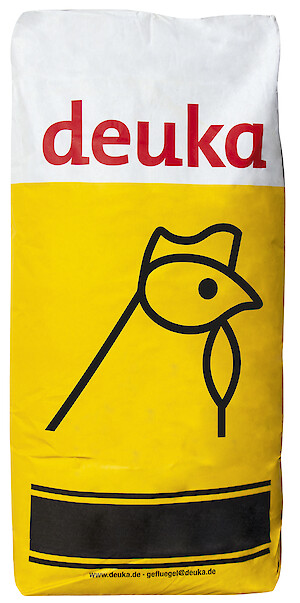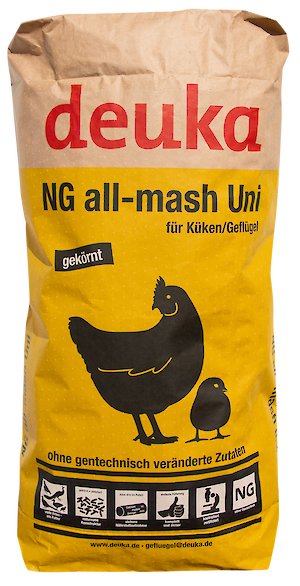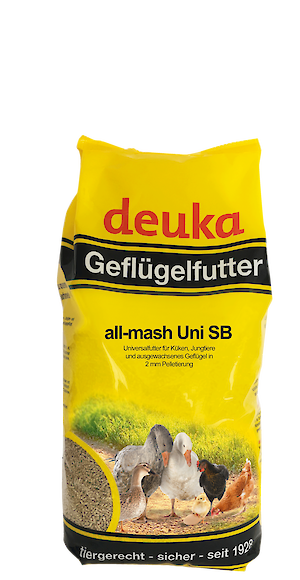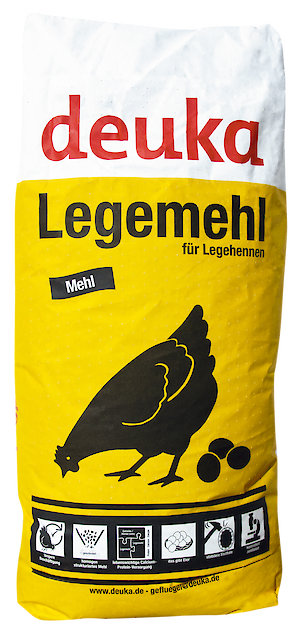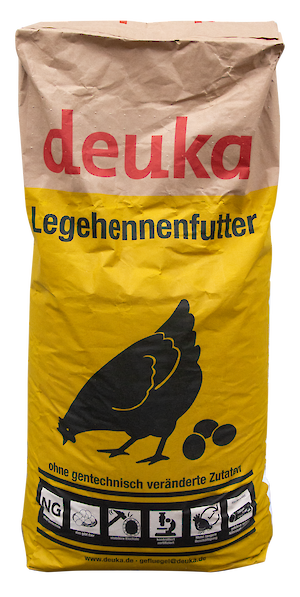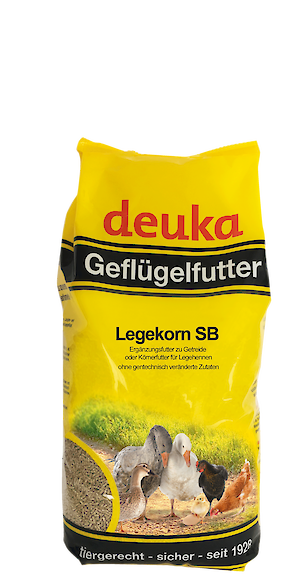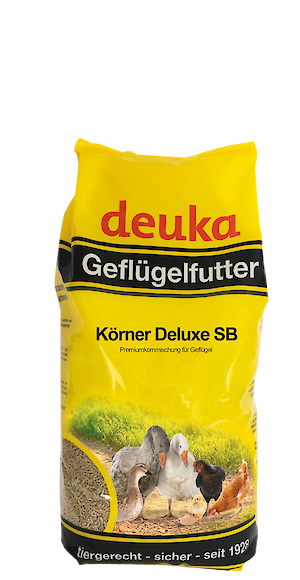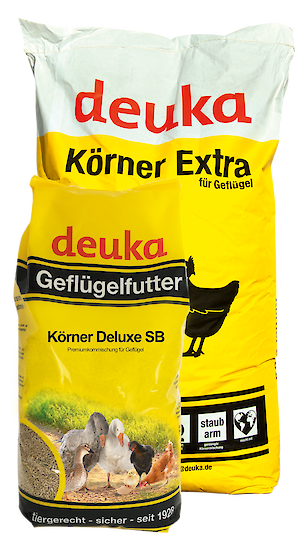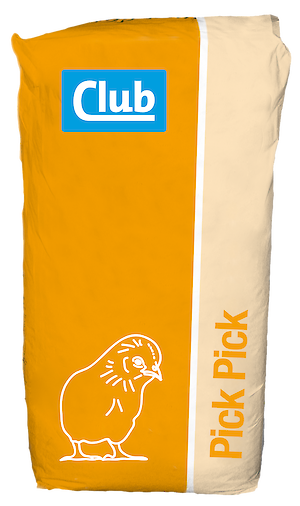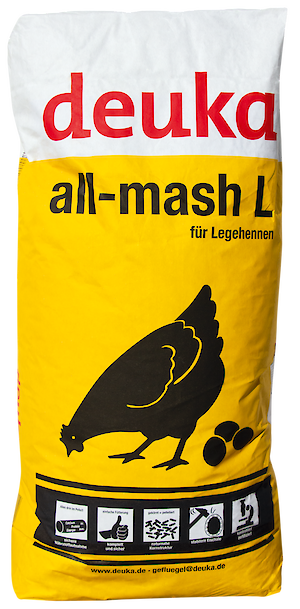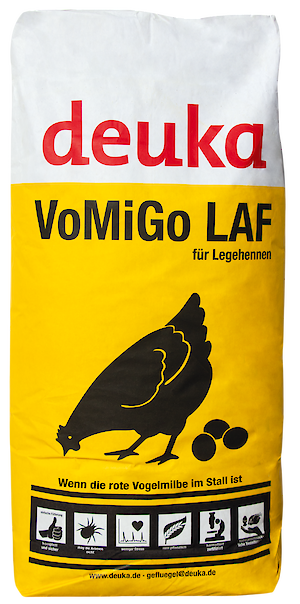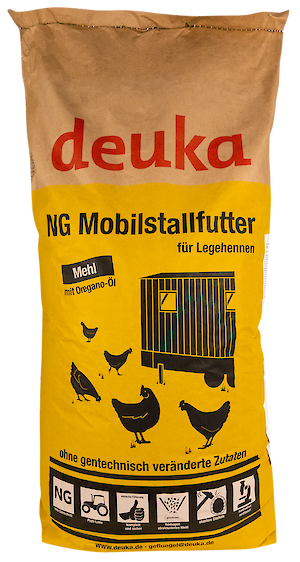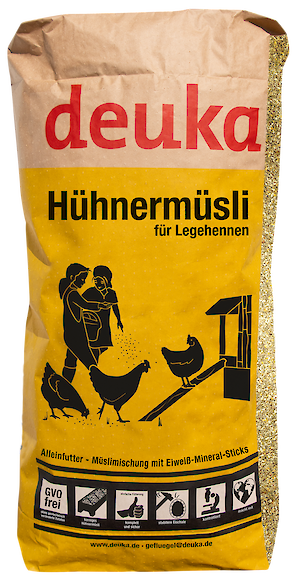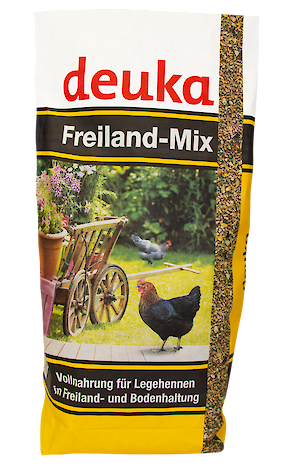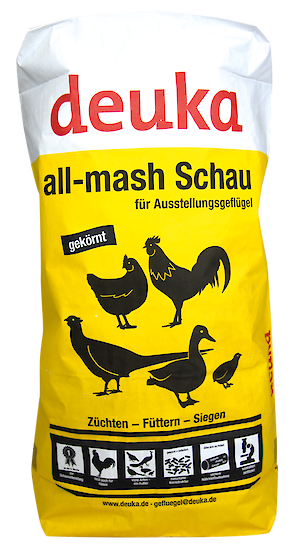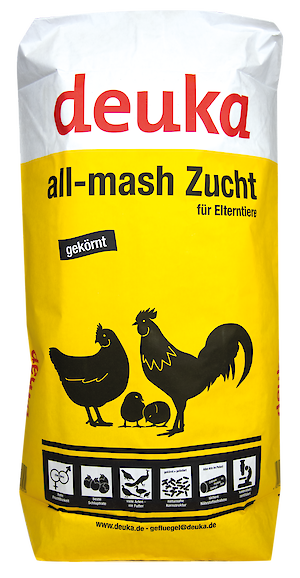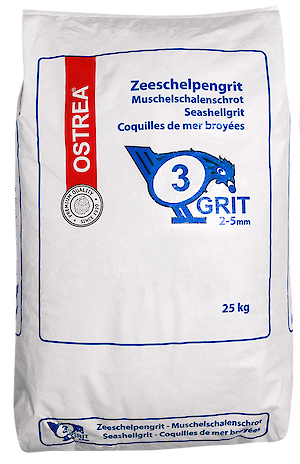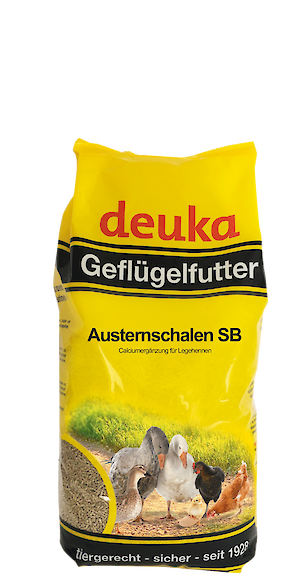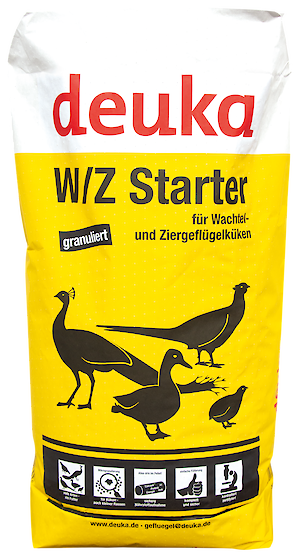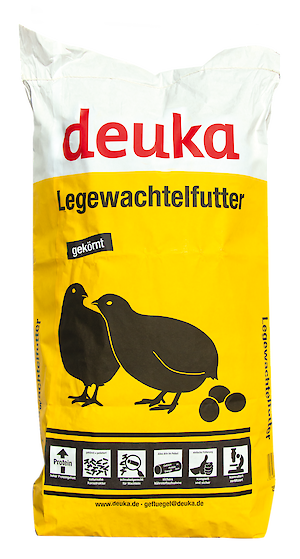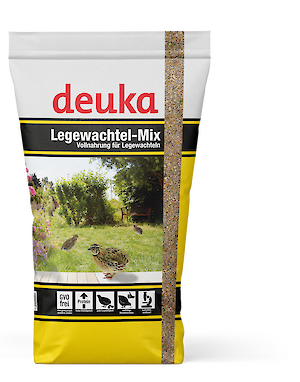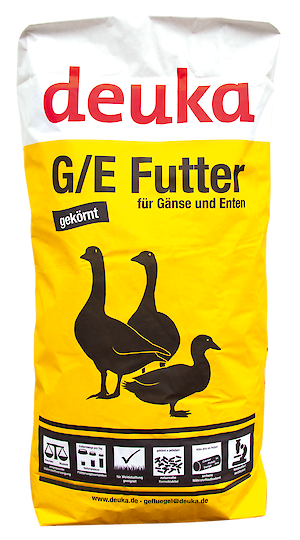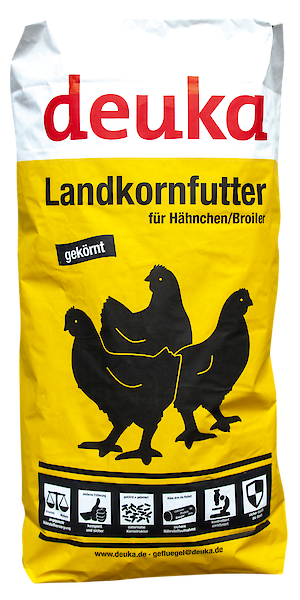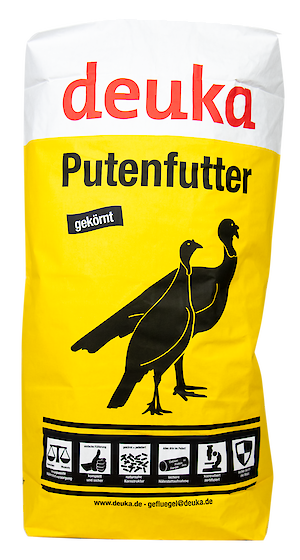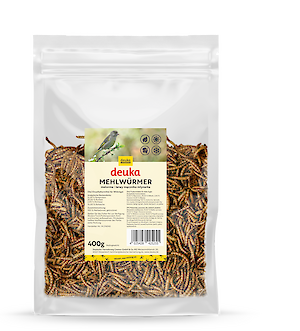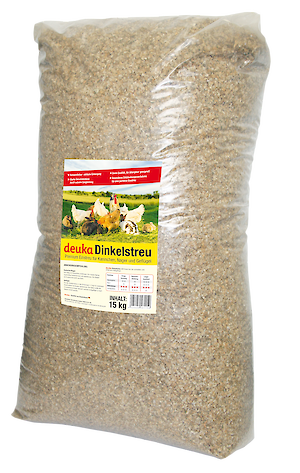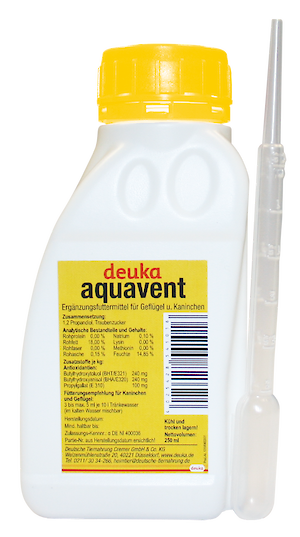Laying meal / laying grain
Supplementary feed for laying hens
- Club Laying Meal as structured meal and Club Laying Grain as pellet are supplementary feeds for laying hens.
- The combined feeding of laying meal / laying grain with your own grain or Club Pick-Pick grain feed results in a complete ration.
- In this way, you ensure that your laying hens are supplied according to their needs for a sustainable laying activity.
The products of our Club brand are mainly sold by dealers in southern Germany. They are marked with the Club brand logo in the dealer search.
Feeding recommendation
Supplementary feed for laying hens.
Feed in a ratio of 2:1 with pick-pick grain feed or cereals two weeks before and during the laying period. Towards the end of the laying period (shortly before moulting) and also generally for older laying hens, supplementary feeding of oyster shells in a separate feed container can be useful.
Ideally, laying meal / laying grain should be fed in the morning before the laying period and grain feed in the evening. The daily requirement for a modern laying hen (hybrid with approx. 1.5 kg body weight) is approx. 120 grams per bird per day. This means 80 g of laying meal/legged grain plus 40 g of grain feed per bird and day.
Always provide fresh drinking water.
Ingredients
| Crude protein | 20,50 % |
| Crude fat | 4,10 % |
| Crude fibre | 2,50 % |
| Crude ash | 18,50 % |
| Lysine | 1,10 % |
| Methionine | 0,45 % |
| Calcium | 5,25 % |
| Phosphorus | 0,45 % |
| Sodium | 0,20 % |
| Energy | 10.20 MJ ME/ kg |
There may be slight deviations in the content of individual nutrients and ingredients between the suppliers.
For individual values, there may be slight deviations in content between the supplier plants.
List of ingredients
Soya extracts (steam-cooked), maize, calcium carbonate, wheat, soya oil, sodium chloride, monocalcium phosphate, vegetable fatty acids, Na carbonate,
There may be slight deviations in the content of individual nutrients and ingredients between the suppliers.
Vitamins
| Vitamin A | 13.500.00 I.U./kg |
| Vitamin D3 | 3.750.00 I.U./kg |
| Vitamin E | 30.00 mg/kg |
For individual values, there may be slight deviations in content between the supplier plants.
Trace elements
contain other trace elements
For individual values, there may be slight deviations in content between the supplier plants.
More feeds in our assortment



